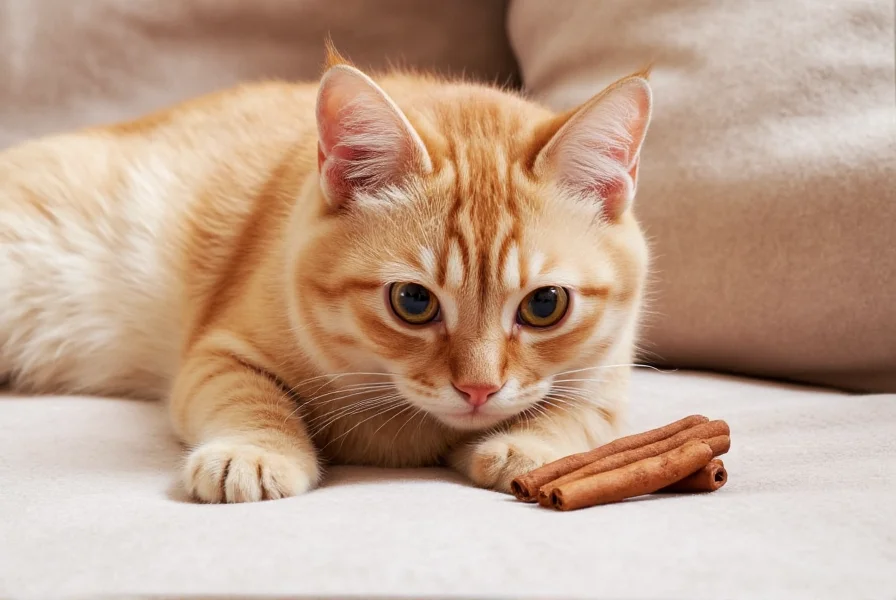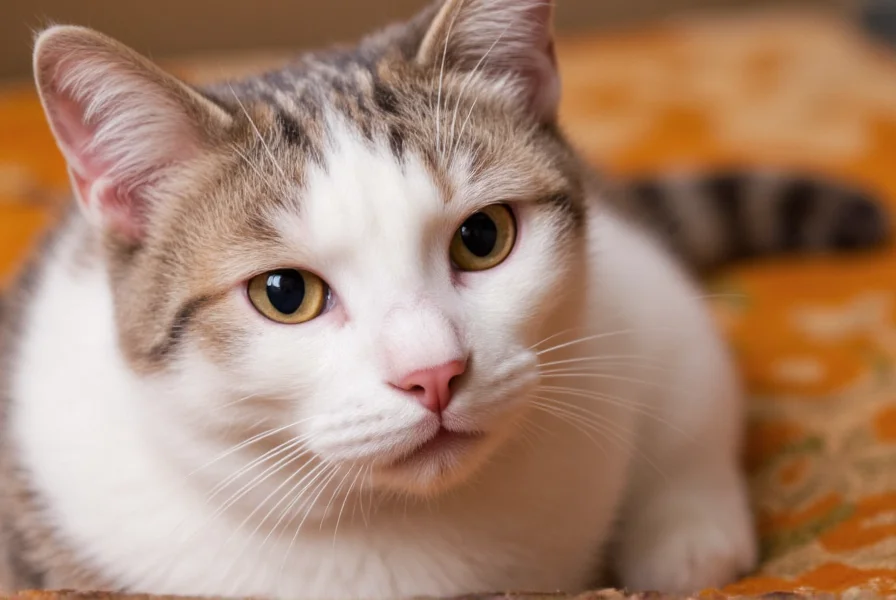As a cat owner, understanding household substances that could harm your feline companion is crucial for their wellbeing. Cinnamon, a common kitchen spice, raises legitimate safety concerns when cats are exposed to it. This comprehensive guide examines the relationship between cinnamon and cats based on current veterinary knowledge and toxicology research.
Understanding Cinnamon's Effects on Cats
Cinnamon contains compounds that cats process differently than humans. The primary concern is coumarin, a naturally occurring substance that can cause liver damage in high doses. Cats lack certain liver enzymes that help process these compounds, making them more vulnerable to potential toxicity.
While ground cinnamon poses moderate risk, cinnamon essential oil represents the greatest danger due to its highly concentrated nature. Just a few drops of cinnamon oil can cause serious health issues in cats. The American Society for the Prevention of Cruelty to Animals (ASPCA) lists cinnamon as a potential hazard for cats, particularly in essential oil form.

Symptoms of Cinnamon Exposure in Cats
Cat owners should watch for these signs if their pet has been exposed to cinnamon:
- Drooling or pawing at the mouth
- Vomiting or diarrhea
- Difficulty breathing or wheezing
- Lethargy or weakness
- Redness or irritation on skin
- Low blood sugar (hypoglycemia)
The severity of symptoms depends on the form of cinnamon, amount exposed, and individual cat sensitivity. Inhalation of cinnamon powder can cause respiratory distress, while ingestion may lead to gastrointestinal issues. Topical exposure to cinnamon oil can cause chemical burns on sensitive feline skin.
Different Forms of Cinnamon and Their Risks
| Cinnamon Form | Risk Level | Common Exposure Routes | Recommended Action |
|---|---|---|---|
| Ground cinnamon | Moderate | Ingestion, inhalation | Monitor for symptoms, provide water |
| Cinnamon sticks | Low-Moderate | Chewing, playing | Remove from cat's reach |
| Cinnamon essential oil | High | Skin contact, diffusion, ingestion | Immediate veterinary attention |
| Cinnamon-scented products | Variable | Inhalation, contact | Discontinue use around cats |
What to Do If Your Cat Is Exposed to Cinnamon
If you suspect your cat has been exposed to cinnamon, follow these steps:
- Immediately remove your cat from the source of exposure
- For skin contact: Gently wash the affected area with mild soap and water
- For eye exposure: Flush eyes with lukewarm water for several minutes
- For inhalation: Move your cat to fresh air immediately
- For ingestion: Do not induce vomiting unless directed by a veterinarian
- Contact your veterinarian or pet poison control for specific guidance
The Pet Poison Helpline recommends having your cat's weight, the type of cinnamon product, estimated amount exposed, and time of exposure ready when calling for assistance. Never administer human medications to your cat without veterinary guidance.
Preventing Cinnamon Exposure in Your Home
Prevention remains the best approach for keeping your cat safe from cinnamon-related issues:
- Store all cinnamon products in closed cabinets out of reach
- Avoid using cinnamon essential oils in diffusers in homes with cats
- Be cautious with baking projects involving cinnamon when cats are present
- Check ingredient labels on household products for cinnamon derivatives
- Avoid using cinnamon-based pest repellents in cat-accessible areas
Many cat owners don't realize that cinnamon is sometimes included in natural cleaning products, air fresheners, and even some pet products marketed as "natural." Always check ingredient lists carefully when purchasing household items for homes with cats.
When to Seek Veterinary Care
Contact your veterinarian immediately if your cat shows any of these symptoms after cinnamon exposure:
- Difficulty breathing that persists after removing from exposure
- Repeated vomiting or diarrhea
- Signs of pain or distress
- Lethargy lasting more than a few hours
- Any symptoms following exposure to cinnamon essential oil
Early intervention significantly improves outcomes for cats with potential cinnamon-related issues. Your veterinarian may recommend supportive care, fluid therapy, or other treatments depending on the severity of exposure.
Safe Alternatives for Cat-Friendly Homes
If you're looking for natural scents or remedies that won't harm your cat, consider these safer alternatives:
- Lavender (in moderation and not as essential oil)
- Chamomile (consult vet first)
- Cat-safe herbs like catnip or valerian root
- Vinegar-based cleaning solutions
Remember that "natural" doesn't always mean safe for cats. Always verify the safety of any new product before introducing it to your cat's environment.
Frequently Asked Questions
Can cats have a small amount of cinnamon in their food?
No, cats should not have any cinnamon in their food. Even small amounts can cause digestive upset, and there's no nutritional benefit for cats. Cats are obligate carnivores with specific dietary needs that don't include spices like cinnamon.
How much cinnamon is toxic to cats?
There's no established safe threshold, but even small amounts of ground cinnamon (1-2 teaspoons) can cause issues. Cinnamon essential oil is particularly dangerous - just a few drops can cause serious problems. The concentration, form, and individual cat sensitivity all affect toxicity levels.
What should I do if my cat licked cinnamon essential oil?
Contact your veterinarian or pet poison control immediately. Do not induce vomiting. Wipe any remaining oil from your cat's mouth with a damp cloth and monitor for symptoms like drooling, vomiting, or difficulty breathing. Essential oils are highly concentrated and pose significant risks to cats.
Are cinnamon sticks dangerous for cats?
Cinnamon sticks pose a moderate risk. While less concentrated than powder or oil, they can still cause mouth irritation if chewed. The main concern is potential choking hazard or intestinal blockage if pieces are swallowed. Keep cinnamon sticks out of reach of curious cats.
Can cinnamon exposure cause long-term damage to cats?
In most cases of mild exposure, cats recover fully with proper care. However, significant exposure to cinnamon essential oil can potentially cause liver damage due to coumarin content. Repeated exposure may lead to chronic digestive issues. Prompt veterinary care minimizes the risk of long-term complications.











 浙公网安备
33010002000092号
浙公网安备
33010002000092号 浙B2-20120091-4
浙B2-20120091-4